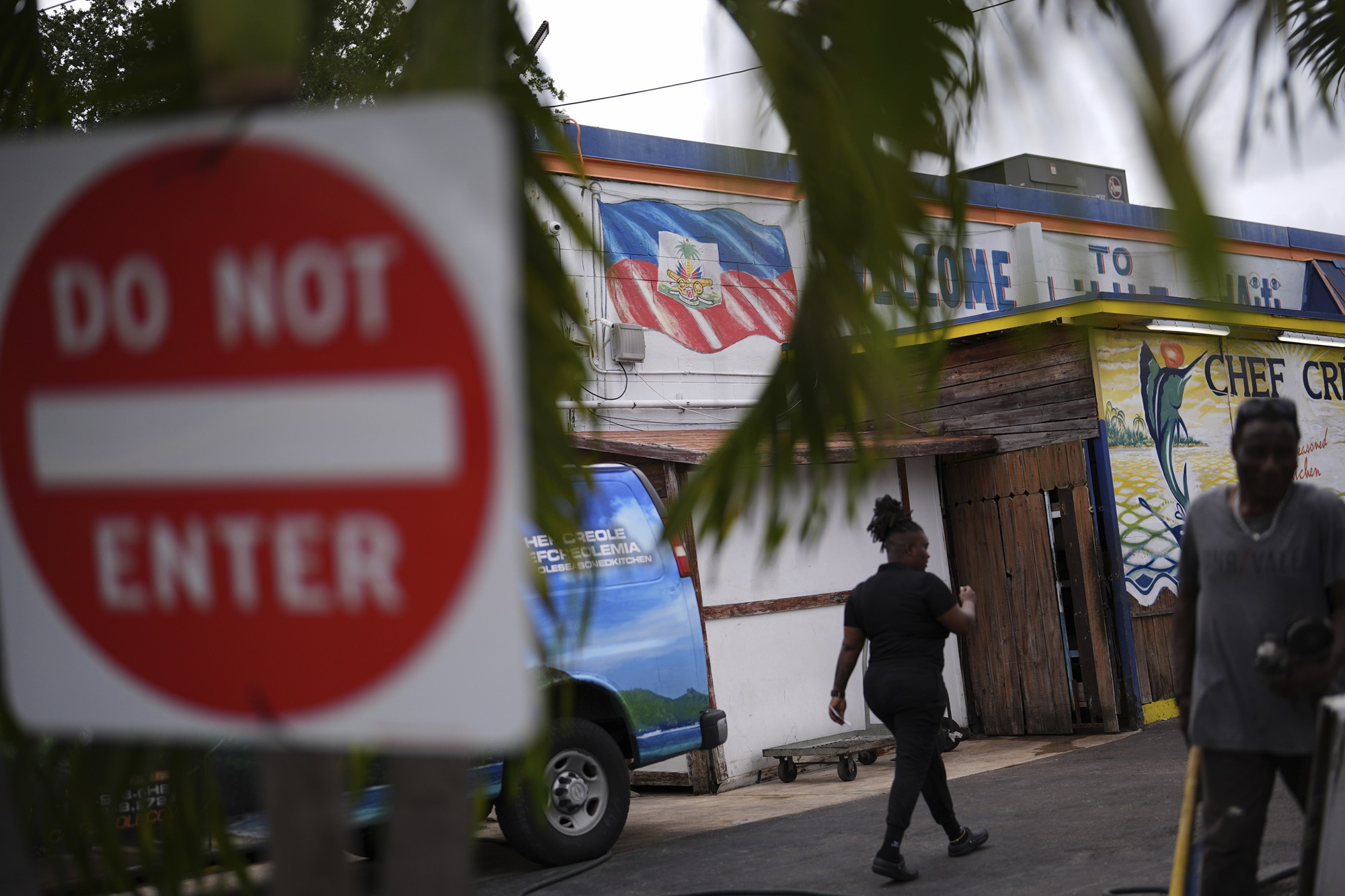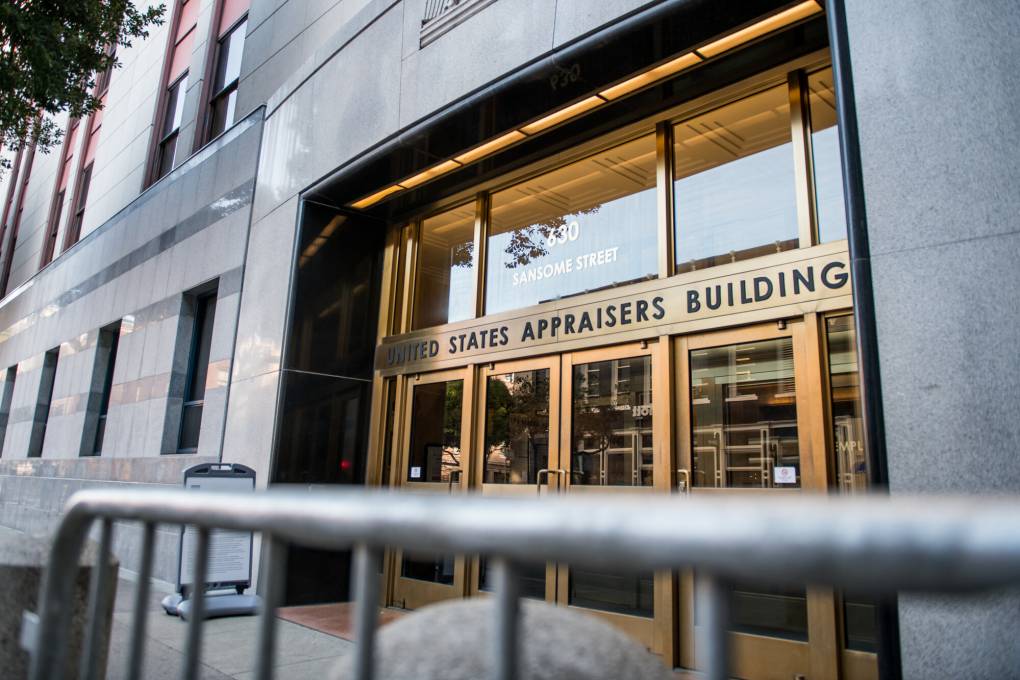Trump said he relied on guidance from advisers, including Secretary of State Marco Rubio and Stephen Miller, a homeland security adviser, to compile a list of countries with deficient security vetting, “a significant terrorist presence” and a high rate of nationals who overstay U.S. visas, among other factors. He said countries could be added to or removed from the list, based on whether they comply with U.S. security requirements.
In the proclamation, Trump reiterated part of a Jan. 20 executive order, saying “it is the policy of the United States to protect its citizens from aliens who intend to commit terrorist attacks, threaten our national security, espouse hateful ideology, or otherwise exploit the immigration laws for malevolent purposes.”
In a video message, Trump tied the ban to the recent attack by an Egyptian man on a group of people holding a vigil in Boulder, Colorado, for Israeli hostages held by Hamas. Egypt is not on the travel ban list.
The attack “has underscored the extreme dangers posed to our country by the entry of foreign nationals who are not properly vetted,” he said. “We don’t want them.”
The ban is set to take effect Monday, June 9, at 12:01 a.m. Eastern time.
‘Our country is better than this’
U.S. Sen. Alex Padilla called the plan discriminatory.
“This senseless, prejudicial policy is an abuse of power that also threatens U.S. citizen relatives from the targeted countries,” he said in a statement. “Our country is better than this.”
Many advocates said that — while the list of banned countries is broader than the one announced in the early days of Trump’s first term, which focused on predominantly Muslim countries — this ban targets countries with “Black and Brown” inhabitants.
“This is the same administration that deports Black immigrants only to import White refugees from South Africa under the false claim of genocide,’’ said Guerline Jozef, executive director of the San Diego-based Haitian Bridge Alliance. “Once again, U.S. immigration policy is being weaponized to deny entry, dignity and basic human rights to people from countries that have long borne the brunt of colonialism, Western intervention and economic extraction.”
The libertarian Cato Institute said the annual chance of being murdered by a terrorist from one of the banned countries from 1975 to the end of 2024 was vanishingly small — about 1 in 13.9 billion per year.
Cato analyst Alex Nowrasteh called the ban ineffective and a waste of resources.
“The United States government has a responsibility to keep terrorists and criminals out of the country and to remove those who make it through,” he said. “However, the government should pursue a rational and evidence-based approach when evaluating the threat posed by foreign nationals.”
In the Bay Area, immigrant advocates and resettlement organizations were especially concerned about the impact of the ban on the tens of thousands of Afghans the U.S. admitted on temporary parole after airlifting them out of Kabul as the Taliban took over in 2021. Some have received asylum, which provides a path to legal permanent residence, but many others are still in the process of applying. And most are still desperately trying to bring their spouses and children to join them in the U.S.
“The travel ban will break our country’s promise for a safe future in the United States for all Afghans who worked alongside and kept safe United States military personnel in Afghanistan,” said Robin Mencher, executive director of Jewish Family and Community Services of the East Bay, which has resettled more than 2,300 Afghans since 2021, with many applications still in the pipeline.
Paris Etemadi Scott, legal director with the Pars Equality Center in San Jose, said she is hearing from many Afghan asylees by email and phone, anxious to know how the travel ban will affect their relatives.
“Our immediate biggest fear right now is for families of Afghans who are still stuck in Afghanistan,” she said. “I have families who, finally, after three or four years’ wait, just got their interview to be processed to come and join their spouse here. I have a family of seven, a spouse and six children, who don’t know whether they fall within this ban or not.”
Legal challenges
The first travel ban, which Trump implemented by executive order in January 2017 with no advance notice, caused chaos at airports, as border officials were caught off guard and travelers with valid visas were stuck in transit, turned back or stranded inside airports. By the time a federal judge stayed the order on Feb. 3, 60,000 visas had been provisionally revoked.
A series of court challenges led the Trump administration to revise the order twice before the U.S. Supreme Court upheld a third version in June 2018. That version applied to individuals from Iran, Libya, North Korea, Somalia, Syria and Yemen, plus government officials from Venezuela. It was supposed to include a mechanism for citizens from banned countries to request a waiver permitting them to travel to the U.S.
However, the process was unclear, and most applications were denied. Pars Equality Center sued and won.
Former President Joe Biden rescinded the ban on his first day in office in 2021, calling it “a stain on our national conscience.” But it wasn’t until last May that a federal judge cleared the way for 25,000 people from affected countries to submit new visa applications, with fees waived, as a result of the Pars lawsuit. Scott said the new travel ban could do away with that access for many.
Today, she said, Pars Equality Center and other immigrant advocacy organizations are looking for clarification of the terms of the new ban — and considering whether to challenge it in court.


